
RECORD FISH
Eel breaks British record after 46 years
The BRFC met at The Natural History Museum, London, on 14th June 2024.
Present were: Stephen Mardlin MBE (Chairman), Oliver Crimmen (Scientific Advisor, Natural History Museum), Andy Nellist (Vice-Chairman), Paul Coulson (Freshwater Specialist), James Maclaine (Scientific Advisor, Natural History Museum), Nigel Hewlett (Freshwater Scientific Advisor) and Nick Simmonds (Secretary).
Remotely attending were: David Craig (Ireland representative, Marine) and Paul Edwards (Wales representative).
Apologies for absence were received from: Dr Phill Williams, Mr Tim Froome and Mr Mat Mander.
The committee considered and accepted the following record claims as being duly ratified:
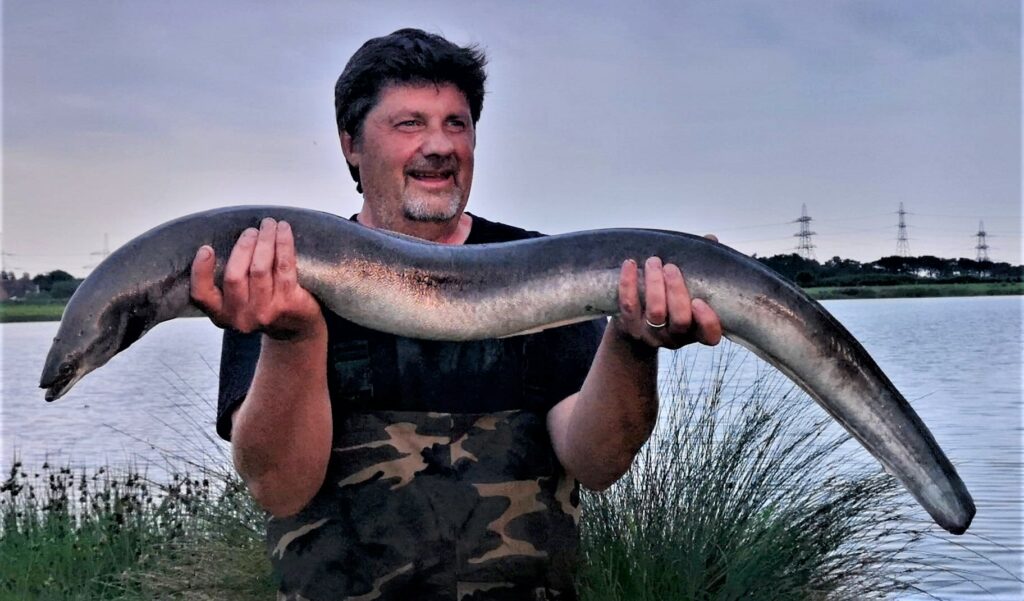
Eel (Anguilla anguilla), caught by Steve Ricketts from a Southern stillwater on 3rd June 2024 and ratified at a weight of 11lb 3oz. Steve’s fish beats by just one ounce Mr S Terry’s longest-standing current British coarse fish record of 11lb 2oz, from 1978.
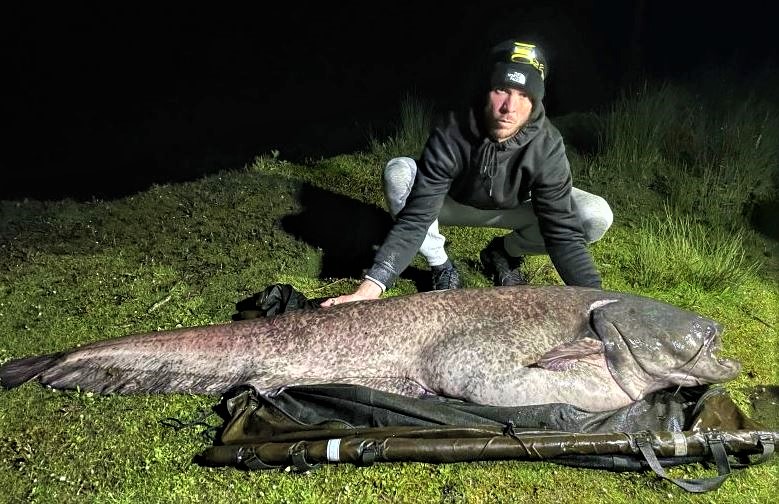
Wels catfish (Silurus glanis) caught by Darren Reitz on 27th April 2024 from Chigborough Fisheries in Essex and ratified at a weight of 143lb 14oz. Some press reports immediately following this capture stated that a number of people were involved in the capture of this fish. The BRFC has established to its satisfaction that its rules in respect of the playing and landing of the fish were not breached.
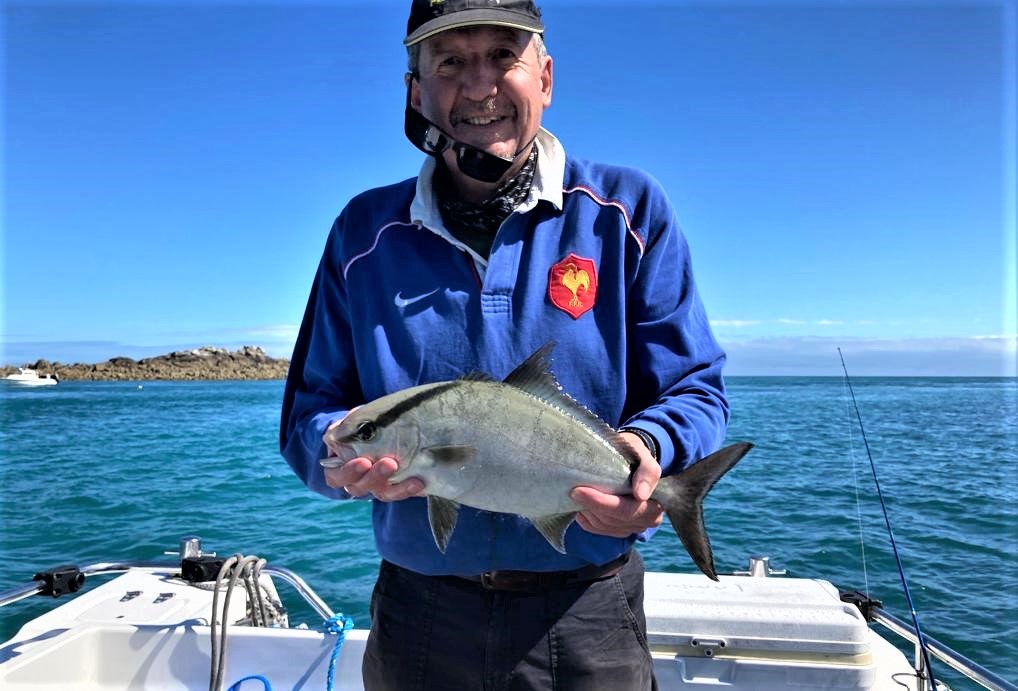
Almaco Jack (Seriola rivoliana) caught on 10th October 2023 by Stephen Camm while boat fishing a mark north of Herm in the Channel Islands. Stephen’s fish was ratified at a weight of 2lb 2oz and is recorded as an equal record with Kevin Copeland’s fish caught from Milford Haven in 2018.
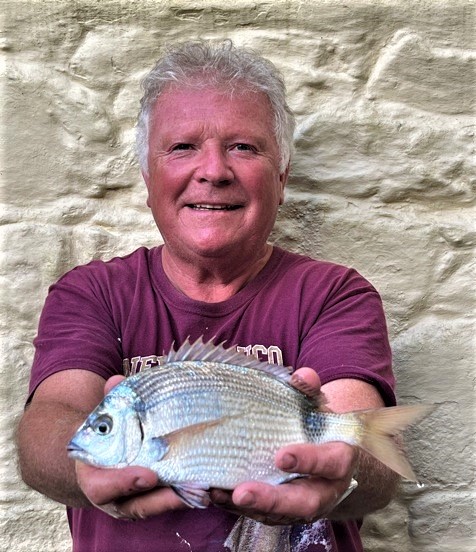
Two-banded sea bream (Diplodus vulgaris) caught by Geoff Le Page on 30th September 2023 from the shore on the east coast of Guernsey and ratified at a weight of 313 grams.
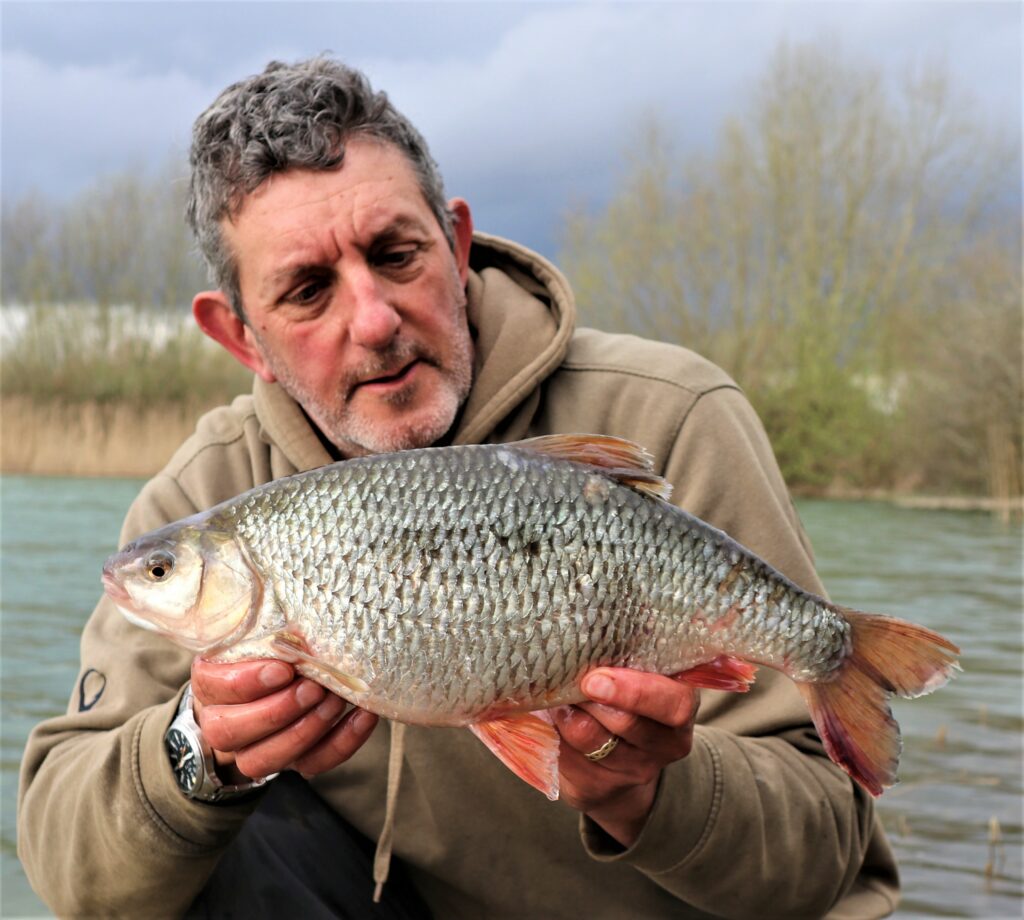
Roach (Rutilus rutilus), caught by David (Dai) Gribble from Linear Fisheries’ Brasenose 1 pit on 19th March 2024 and ratified as an equal record at the weight of 4lb 3oz.
Dai recorded the weight of his fish at 4lb 4oz, but the scales test, carried out in accordance with current BRFC protocol, indicated that the minimum weight required to produce a scale reading of 4lb 4oz was in fact slightly less than 4lb 4oz. BRFC protocol states that in such cases, the ratified weight for a capture will be rounded down to the next whole scale division. As Dai’s scale displays in one-ounce increments, the ratified weight is rounded down to 4lb 3oz.
To ensure a consistent approach to recording weights, the BRFC’s current scales test protocol was introduced in 2008. Thus, when a scale check for a new record claim shows the fish to be close to, but not larger than, the current record weight we check the previous record weight by applying the current protocol to the scales check carried out at the time. In the past this led to the rounding down of the Crucian Carp record to the nearest ounce.
In this case, the scales check for Dai Gribble’s fish showed the minimum weight required to produce a reading of 4lb 4oz was very slightly under 4lb 4oz and the weight would therefore be recorded at 4lb 3oz.
The Committee then applied the protocol to the previous record (awarded in 2007) and this showed that, had the protocol been in place when it was considered, the weight of Keith
Berry’s fish would have been recorded an ounce lower at 4lb 3oz.
The previous record of Ray Clarke was 4lb 3oz so we also applied the protocol to the scales test for that record. That would have seen the weight for Ray’s fish rounded down to 4lb 2oz. The record will therefore now be amended to 4lb 3oz and will be shared by Keith Berry and Dai Gribble.
———————————
The BRFC is close to finalising its plans to introduce length-based records for sea fish and a separate announcement, together with protocols for submission of length-based claims, will be released in due course.
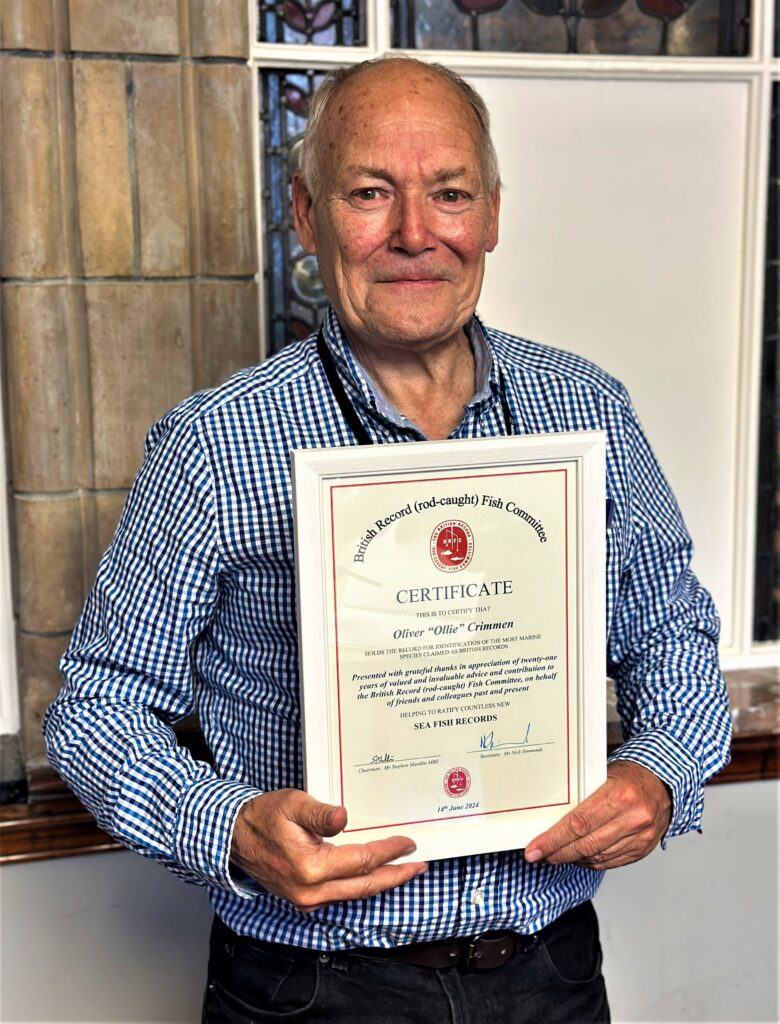
After more than 20 years of providing the BRFC with invaluable advice in respect of the identification of sea fish species and on wider issues involving marine matters affecting the committee, Oliver Crimmen retired from his position as Marine Scientific Advisor to the BRFC. Oliver has also recently retired from his role as Senior Fish Curator at the Natural History Museum, where he had worked for over 50 years. The position of Marine Scientific Advisor to the BRFC has been taken up by Oliver’s colleague and fellow Senior Fish Curator at the Natural History Museum, James Maclaine, who joined the committee in 2023. Oliver will continue to be invited to attend BRFC meetings as a welcome guest.
The next meeting of the BRFC was scheduled for 22nd November 2024.
The Committee would like to remind readers that in the event of the capture of a potential record fish, the captor should first contact the British Record (rod-caught) Fish Committee without delay.
Captors of potential record fish should contact the Secretary, Nick Simmonds, at the Angling Trust, on 01568 620447 or by email at brfc@anglingtrust.net. Nick will record the details of the capture and advise the claimant on progressing the claim.
More information about what to do if you catch a record fish can be found on the BRFC web pages here.
You might also like

What to do if fish are gasping or spawning.…

WORLD CHAMPS GOLD FIRMLY IN THE SIGHTS OF ENGLAND…

We Fish as One supports Pride Month 2025

Sunglasses giant backs Angling Trust

Join in with the Check, Clean, Dry campaign this…

From TikTok to the classroom – Orchard School follows…
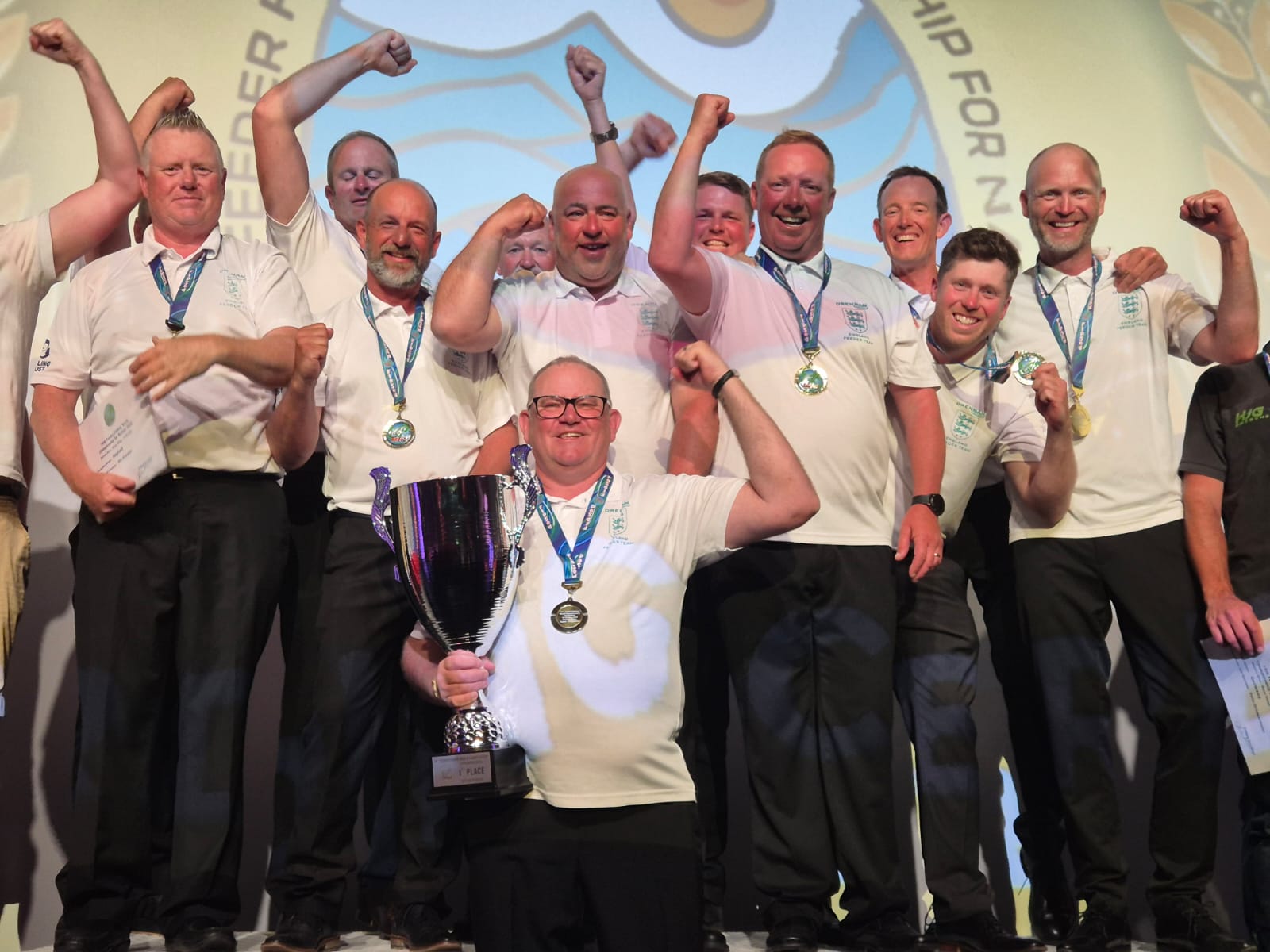
DRENNAN ENGLAND FEEDER TEAM WIN WORLD CHAMPS!

Family fishing at Aston Park Fisheries where have a…
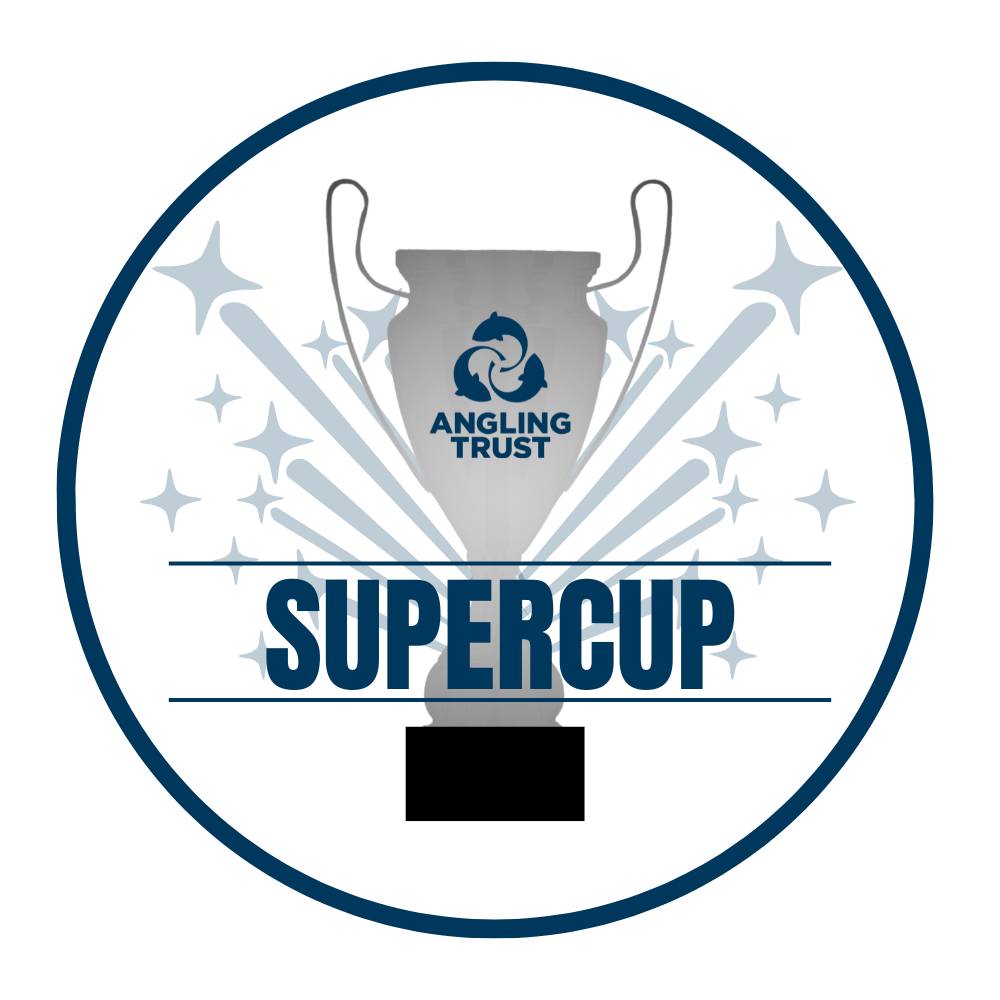
FOURTEEN SIDES ALREADY THROUGH TO SUPERCUP ROUND 2!
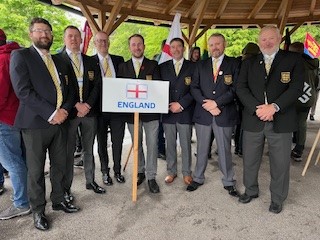
SIXTH FOR ENGLAND AT FLY WORLD CHAMPS

Much needed new European Management Plan for Cormorants moves…
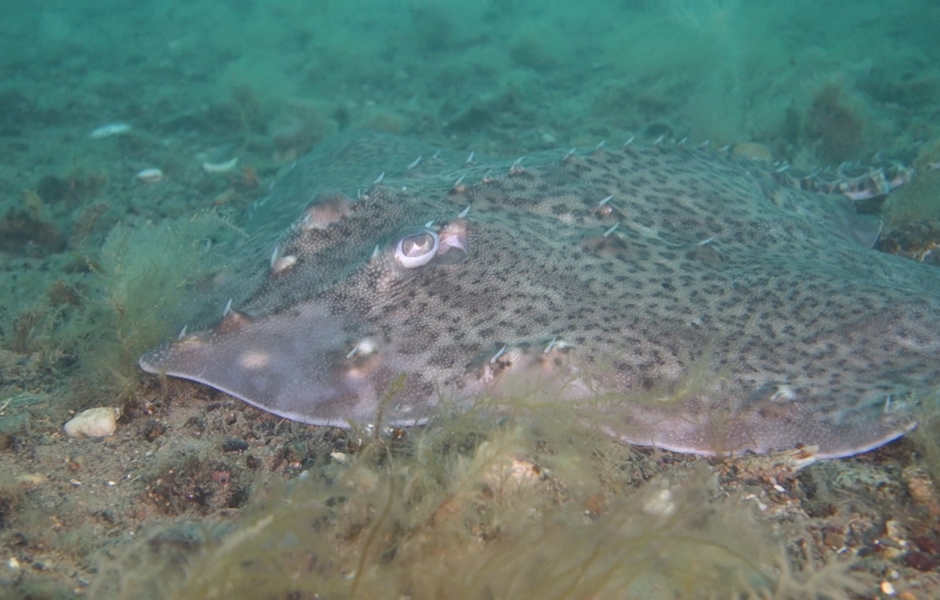
A Turning Tide: Why Ending Bottom Trawling in MPAs…

What to do if fish are gasping or spawning.…

WORLD CHAMPS GOLD FIRMLY IN THE SIGHTS OF ENGLAND…

We Fish as One supports Pride Month 2025

Sunglasses giant backs Angling Trust

Join in with the Check, Clean, Dry campaign this…

From TikTok to the classroom – Orchard School follows…

DRENNAN ENGLAND FEEDER TEAM WIN WORLD CHAMPS!

Family fishing at Aston Park Fisheries where have a…

FOURTEEN SIDES ALREADY THROUGH TO SUPERCUP ROUND 2!

SIXTH FOR ENGLAND AT FLY WORLD CHAMPS

Much needed new European Management Plan for Cormorants moves…

A Turning Tide: Why Ending Bottom Trawling in MPAs…

What to do if fish are gasping or spawning.…

WORLD CHAMPS GOLD FIRMLY IN THE SIGHTS OF ENGLAND…

We Fish as One supports Pride Month 2025

Sunglasses giant backs Angling Trust

Join in with the Check, Clean, Dry campaign this…

From TikTok to the classroom – Orchard School follows…

DRENNAN ENGLAND FEEDER TEAM WIN WORLD CHAMPS!

Family fishing at Aston Park Fisheries where have a…

FOURTEEN SIDES ALREADY THROUGH TO SUPERCUP ROUND 2!

SIXTH FOR ENGLAND AT FLY WORLD CHAMPS

Much needed new European Management Plan for Cormorants moves…









